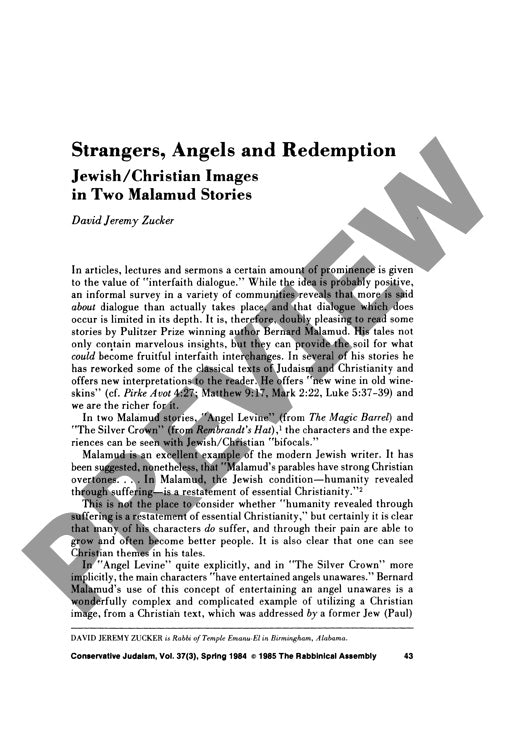Strangers Angels and Redemption Jewish C
Couldn't load pickup availability
Bernard Malamud's short stories "Angel Levine" and "The Silver Crown" masterfully interweave Jewish and Christian theological imagery to create powerful narratives of faith and redemption. Through close textual analysis of character development, religious motifs, and structural elements, these stories emerge as sophisticated reworkings of classical religious texts, with "The Silver Crown" functioning as an ironic counterpoint to "Angel Levine." Both narratives draw upon the biblical concept of "entertaining angels unawares" from Hebrews 13:2 while incorporating Jewish traditions surrounding the prophet Elijah and Passover themes. The stories mirror the tripartite Haggadah structure of social concern, physical bondage, and spiritual condition, though each reaches distinctly different conclusions based on their protagonists' responses to divine intervention. Comparative literary analysis reveals parallel themes, symbols, and biblical allusions that demonstrate meaningful interfaith dialogue within Malamud's narrative framework. The research methodology employs detailed textual examination to trace connections between these stories and both Jewish Passover traditions and Christian biblical texts, particularly Hebrews and James. Malamud's narratives successfully bridge Jewish and Christian interpretive frameworks, offering readers from both traditions meaningful spiritual insights. These works exemplify how literature can facilitate interfaith understanding by presenting universal themes of suffering, redemption, and faith through culturally specific yet accessible religious imagery, ultimately demonstrating the potential for cross-cultural religious dialogue through literary interpretation.

More Information
-
Physical Description
-
Publication Information
Published 1984
ISBN
-
Publication Credits
David Zucker

